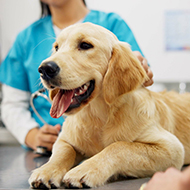Wildcat kittens born in Cairngorms National Park
The project's cameras have caught footage of the kittens in the wild.
Scottish wildcat kittens have been born in the wild in the Cairngorms National Park, marking a major milestone for a conservation project.
Last summer, 19 captive-bred wildcats were released as part of the Saving Wildcats project, which is led by the Royal Zoological Society of Scotland.
Since then, the cats have been monitored with the help of GPS collars. At least two of the females have given birth this year.
Keri Langridge, Saving Wildcats field manager, said: “We suspected that some of the females had given birth when their movement and activity changed very suddenly, but didn’t know for sure until footage of the kittens was captured on our cameras.”
The mothers and kittens are being monitored, with care being taken not to disturb them. Once the kittens are old enough, the team will attempt to take DNA profiles to make certain that they are the offspring of male wildcats.
Scottish wildcats have become at risk of extinction in recent years, and interbreeding with domestic cats is one of the dangers the species faces. To minimise the chances of this happening, the Saving Wildcats project has been neutering feral domestic cats in the local area. Cat owners in the area have also been urged to make sure their pet cats are neutered.
Helen Senn, lead for Saving Wildcats, said: “This is a major milestone for wildcat recovery in Scotland.
“These births demonstrate that the process of breeding wildcats for release into the wild is working, as those released animals have learned to hunt and survive – and now reproduce in their first breeding season, a clear indication that they are doing well.”
Image © Saving Wildcats



 The CMA has invited comments on a draft survey invitation letter, as it continues its investigation into consumer experience.
The CMA has invited comments on a draft survey invitation letter, as it continues its investigation into consumer experience.